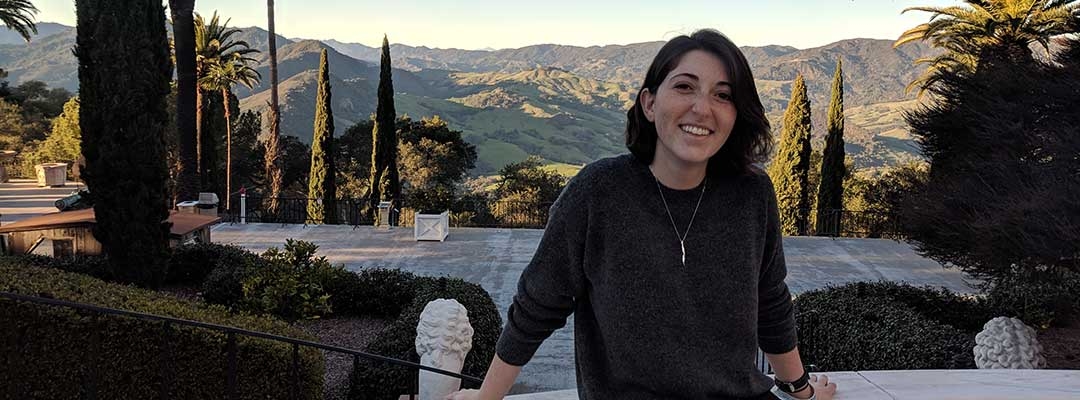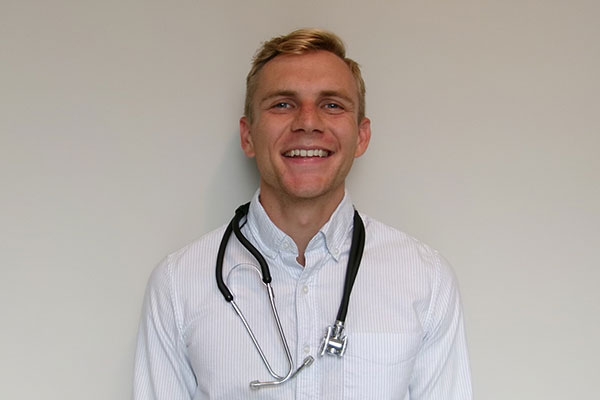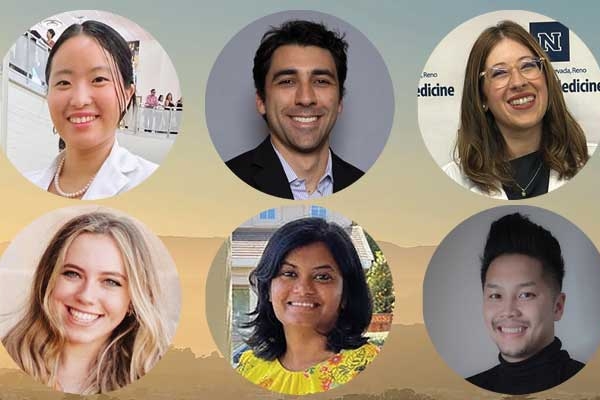It all started with an exciting learning opportunity at Emilie Biondi’s high school. Through the Amgen Biotech Experience, Emilie and her classmates were given the opportunity to produce a protein from genetically modified bacteria.
“I remember it as being one of the most incredible things I got to do in school,” Emilie recalls enthusiastically, “and it opened my eyes to what was achievable with biotechnology.”
And so Emilie set her sights on attaining an undergraduate degree that would propel her into a biotech career with a heavy focus on research. It’s what drew her to apply and be admitted into UC Berkeley, where she would eventually earn a bachelor’s in molecular and cell biology.
“However, after my freshman year,” Emilie tells me, “I started to become interested in pursuing medicine. The winter break before I graduated, I completed a phlebotomy program so I could get some clinical experience.”
Emilie’s determination resulted in becoming a certified phlebotomy technician I through the California Department of Public Health and a nationally certified phlebotomy technician through the National Center for Competency Testing. She leveraged these certifications to work in a phlebotomy technician I externship at the San Francisco City Clinic, where she honed skills in aseptic technique, laboratory safety, patient-care service, venipuncture and specimen collection.
In the spring of 2018—with degree in hand—Emilie began her career in health care as a care coordinator and clinical assistant through the Dolhun Clinic’s pre-medical internship, and “I fell in love with the field.”
I felt that the Advanced Biosciences Program would be an excellent continuation of my undergrad studies and a great way to prepare myself to apply to medical schools.
Just as you were finishing up this internship, you started our Advanced Biosciences Program. What brought you to us?
I knew I wanted to take at least a couple of gap years before applying to medical school, and I also wanted to demonstrate an upward trend in my grades.
During my UC Berkeley undergrad, I overloaded my senior-year schedule with technical coursework, and as a result my GPA suffered. I stressed over my GPA a lot, but I finally came to realize that there were always ways to improve, with one of those ways being your program. I did a bit of research and ultimately opted for the "D.I.Y. post-bacc" approach by completing the Advanced Biosciences Program.
I was drawn to the fact that your coursework is of the same academic rigor as those I took in my undergrad. I felt that the Advanced Biosciences Program would be an excellent continuation of my undergrad studies and a great way to prepare myself to apply to medical schools.
I excelled in my classes, and I feel much more confident in applying to medical schools now that I have tangible evidence of my ability to manage higher-level coursework.
Tell me about your experience going through the program.
I really enjoyed it. In undergrad, class sizes were often quite large, which led to them feeling very impersonal. Class sizes at UC Berkeley Extension were often much smaller, so it was much easier to get to know my instructors and peers better. The instructors were able to become better acquainted with their students, taking time to ask us about our backgrounds and what our goals were.
I started taking classes during COVID so all of my classes were held Live Online, which I actually really enjoyed. I was able to interact with my instructors and peers in real time, as I would in an in-person class, but I was also able to review the material on my own time.
In undergrad, I had issues paying attention and focusing during lectures, so having access to recorded lectures allowed me to skim through the parts that I understood and replay those sections that I had missed and needed to hear explained again. Being able to experience online coursework helped me to discover study methods that work best for me.
I excelled in my classes, and I feel much more confident in applying to medical schools now that I have tangible evidence of my ability to manage higher-level coursework.
Emilie’s Course Journey
In addition to taking required course Current Topics in the Biosciences, Emilie chose the following electives:
Stem Cell Biology, Research and Discovery
Introduction to Human Physiology
Were you working while taking the courses?
Yes, I was also working as a phlebotomist and medical assistant at One Medical at their first "expanded care" office. I drew blood, administered vaccines and medical injections, performed ECGs and assisted clinicians with various procedures. I also managed our lab supply inventory and maintained lab equipment. I worked there for four years, and I trained and supervised many new phlebotomists at the company.
I got to work alongside and became friends with many primary-care and urgent-care clinicians. This is where I gained the most insight into what I enjoy about medicine: being given the privilege to care for others when they're at their most vulnerable and having the capability to lessen their discomfort during those moments.
Taking the physiology course while working was beneficial in that it allowed me to better understand the results of tests and procedures that I was performing for patients. I was able to develop a deeper understanding of the ECG readouts and could then more knowledgeably discuss them with the clinician. As an added bonus, I had plenty of ECG examples to study from!
I took several other classes—immunology, pharmacology—that also led to interesting conversations with the clinicians with whom I worked. I developed a wider knowledge base that allowed me to ask more questions about their methods and thought processes when treating patients.
The courses I took also allowed me to investigate topics of personal interest that I may want to pursue professionally in the future. I became fascinated by space biology and medicine, and I was able to explore this theme in relation to the course topic. For example, I wrote a paper on the effect of spaceflight on immune system function, and I gave a presentation on research regarding stem cell growth in space.
Since finishing the Advanced Biosciences program, I've explored my career options more thoroughly. I've worked in primary care and urgent care, I've volunteered as a crisis counselor, I've interned at the San Mateo County Coroner's Office and now I work in biotech lab management.
When I was younger, I thought perhaps research was my only likely avenue, but I clearly just lacked the insight to see how the biosciences are employed in so many different fields, such as medicine, biotech and forensics. What excites me most about the biosciences is how diverse its applications are. I now work as a laboratory management specialist at biotech startup Tenaya Therapeutics.
What does completing the program mean to you, both personally and professionally?
Earning the Award of Completion holds great personal meaning for me. When I started the program, I had begun to overcome the anxiety associated with looking at my undergrad transcript—and it wasn't really as bad as I had led myself to believe!
I realized that mediocre grades in my senior year were not going to be my end-all-be-all, that all things could be improved upon and that I had the resources at my disposal to do so. This program is my tangible evidence that I am not only capable of handling the rigor of higher-level coursework, but that I am also able to reflect on my performance and make the necessary improvements to be successful.
What excites me most about the biosciences is how diverse its applications are.
What advice would you give to a student who is starting this program?
Take advantage of the relationships that you can build with your instructors and peers. I have long struggled with anxiety surrounding social situations, which unfortunately hindered me from reaching out to professors and classmates when I was in undergrad.
For me, the Advanced Biosciences program wasn't just an opportunity to boost my GPA; it was also an opportunity to make the professional connections that I hadn't been able to previously. The smaller class sizes make it easier to form more meaningful relationships, ask more questions and create more accountability for yourself. Your instructors come from diverse backgrounds, so it's always beneficial to get to know them and learn about their work, as this can expose you to professional avenues that you hadn't considered before.



